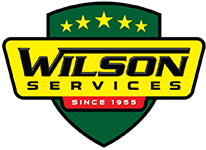Many homeowners don’t fully understand how their septic system works and only find out about repairs when selling their home. This realization can be scary (not to mention expensive!). We’re addressing some of those concerns by covering common questions we receive from local homeowners about septic maintenance and repair.
Why do I need to get my septic pumped so often?
We recommend pumping your tank every 2-3 years (the recommended maintenance interval from NJDEP). In fact, many lake communities require pumping every 3 years. The main reason is that the sludge in your septic tank never dissolves entirely and builds up over time. Regular pumping of your tank cleans out that muck, keeping it from contaminating your drain field–and the groundwater, rivers, and lakes!
Essentially, a septic system is a mini sewage treatment system for your house. Any waste filtered from the water must be pumped out of the tank.
Why doesn’t the septic code “grandfather in” old systems?
Unlike other construction codes for historic homes, the NJ Septic Code allows few conditions for “grandfathering” of non-compliant septic systems. Which means since the latest code revision in 2012, many homeowners must replace septic systems when they sell their homes.
We all need to do our part to protect water quality in our drinking water, lakes, and rivers. The NJDEP recognized they will never solve the problem by allowing old systems (which don’t correctly treat sewage) to remain on properties. Want to learn more? You can check out NJDEP’s web page .
What’s so bad about a water softener?
This question may sound specific, but it’s a very common question when we talk to homeowners. Inspectors and professionals do not recommend connecting your water softener discharge to your septic system, but the plumber or technician may still hook it up to the drain lines in the house (and therefore to the septic!) during installation. Although the septic code does not prohibit water softeners be hooked up to the system, we do not recommend it.
The discharge from your water softener is still clean water but contains a higher concentration of possibly corrosive minerals which could cause harm to your septic system. Most people get a water softener to protect their indoor plumbing fixtures from hard water, but then the softener dumps those minerals into the septic system.
Depending on local ordinances, you can discharge your water softener to a subsurface seepage pit or discharge at grade (similar to a sump pump). You could also hook up the water softener to your sump pit. However, if your sump pump doesn’t work this would cause a flooding problem in your basement!
Remember, water softener discharge is clean water, so you have no reason to be concerned about contaminating your yard.
What’s your turnaround time?
Many homeowners find out about necessary repairs when they are selling their home. Getting a service expert out to review the report, provide a quote, obtain permits, and complete the work takes time… Don’t worry! For common repairs, we can typically have the project finished within two weeks of your initial phone call. If you have a hard deadline (like a house closing), we will do our best to meet it.
Small or steep lots with difficult access may take more time if we need to coordinate permission from your neighbors or use specialized equipment. A full replacement/installation typically takes five to seven days from start to finish but requires an engineered design plan and more extensive permitting process.
Have any other questions? Let us know! We want to serve you and need to know what you want to see in our future blog posts. Click here to send us an email!


Recent Comments